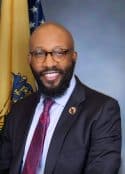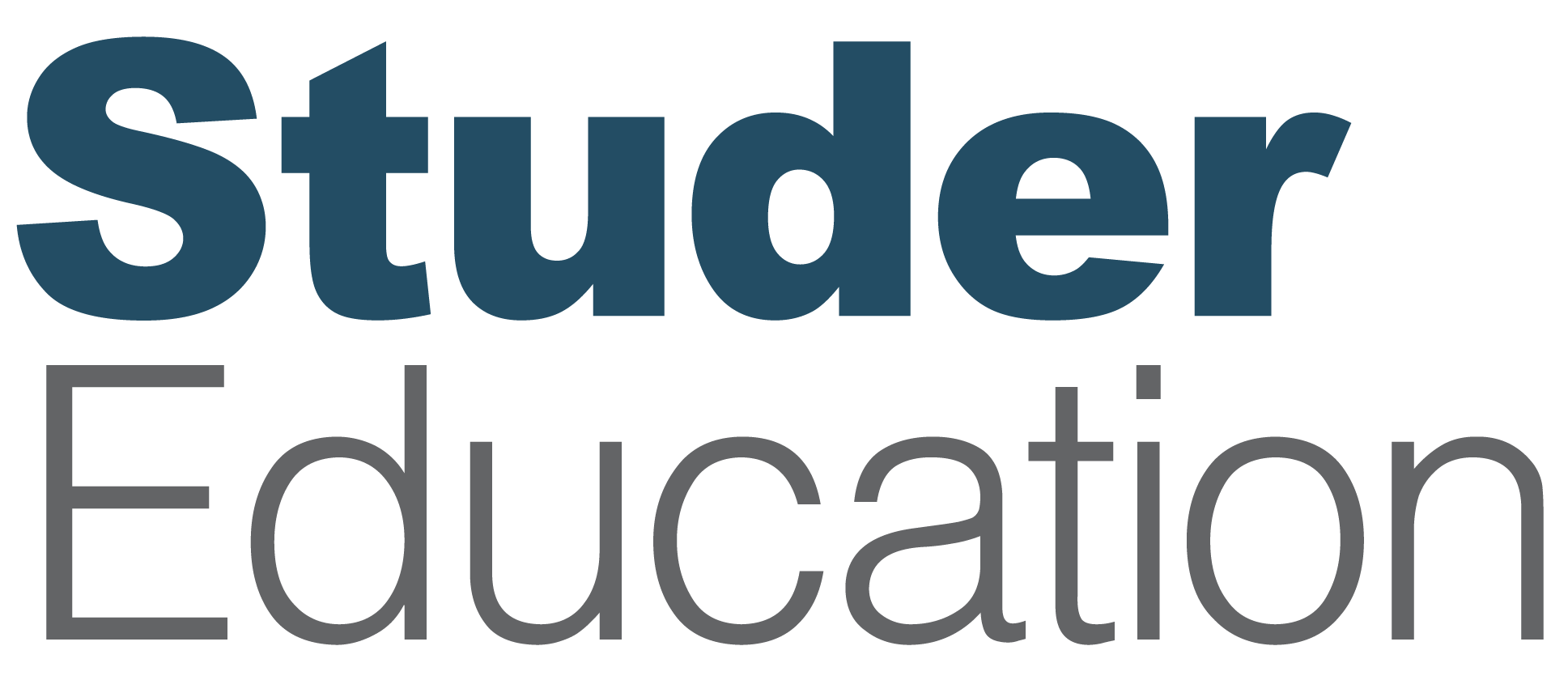
In the second part of a two-episode series, Dr. Janet Pilcher continues her conversation with Superintendent Rashon Hasan of Plainfield Public Schools. Drawing on his unique blend of education and business experience, Rashon shares advice on building powerful, transparent relationships between school boards and superintendents, emphasizing clarity, consistency, and communication.
This episode addresses questions such as:
- How does a background in operations and finance influence an approach to leadership in education?
- What unique insights can be gained from serving as both a board president and a district superintendent?
- What strategies can superintendents and school boards use to intentionally foster collaborative and trusting relationships?
Latest Episodes
Rashon Hasan: I’ve learned through my personal experience that clarity, consistency, and communication is really everything when you think about the relationship between the board and the superintendent.
[Intro music plays in the background.]
Introduction
Janet Pilcher: Hello everyone, welcome to the Accelerate Your Performance podcast. I’m your host, Dr. Janet Pilcher, founder and president of Studer Education.
Last week you heard the first part of my interview with Superintendent Rashon Hasan of Plainfield Public Schools. We uncovered how his background in business and operations uniquely positions him to drive continuous improvement. This includes implementing approaches such as strategic budgeting and cross-departmental accountability as well as rounding and surveys.
Today we pick up right where we left off exploring the practical insights Rashon brings to educational leadership, his journey encompassing roles as both a school business administrator and a corporate operations manager offers a fresh perspective on effective district management. In this episode we’ll dive into another critical aspect of his leadership, his experience on both sides of the table as a former president of the Newark Board of Education and now as the superintendent of Plainfield Public Schools.
Let’s dive in and hear Rashon’s practical advice on cultivating trust, respect, and shared goals between superintendents and school boards.
Interview
Janet Pilcher: So let’s talk a little bit about you and your professional history. You’ve worked and had strength in operations and finance, Rashon. So given this background, you know, how has that unique perspective and experience influenced your approach to leadership and strategic planning with the district?
Rashon Hasan: It’s a great question and I love answering this question because it also allows me to also reflect on my struggle as a professional with trying to get other leaders in the space to understand that I do have a value and a value that was different from theirs.
I heard a lot of things in my professional career as an educator. I’ve heard the term “non-traditional educator” be used a lot when individuals describe me, and I didn’t know how to accept that at first, but I leaned into it. And coming from an operations and finance background, I view educational leadership through the lens of systems thinking and resource alignment.
You know, whenever we’re having a conversation about rolling out a new initiative or building something great for our students, there’s another conversation that has to run in parallel. That conversation is centered around our ability to align resources for that particular initiative or project. And I’ve learned that by leaning into my skillset, it allows me to think through how we’re going to accomplish those things, and I think it helps us bring conversations from being pie-in-the-sky to being more realistic and tangible as we think through how to operationalize those projects or initiatives. Personally, I’ve always believed that a brilliant academic plan without the operational execution is really just a wish list.
Janet Pilcher: Yeah.
Rashon Hasan: In our school district, under my leadership as superintendent, we’ve brought a disciplined approach to strategic budgeting. We ensure that every dollar spent supports our student success, whether that’s through technology, safe buildings, or structural materials. And we use a methodology that’s called the academic return on investment to analyze the return on the investment that we make for any of our academic and intervention programs throughout the organization.
We’ve gotten very good at assessing our programs. If it doesn’t meet our target as it relates to our return on investment, which we hope to be 30%, or roughly 30 cents on every dollar, we’ll do one year of a program redesign. And if we’re unable to make improvements in year two, we’ll then consider abandoning that program and maybe rebuilding or building another program or simply reallocating those resources to another program or initiative that has greater success for our organization.
We’ve also leaned very heavily into our cross departmental accountability. Working through this process of breaking silos, so that teaching and learning, facilities, human resources, and even communications that they work together for the common good of our organization. I’ve often seen in public education settings that offices and departments kind of work in silos, and sometimes there’s a huge gap between what’s happening on the instructional side of the house and the operation side of the house. So I’m very intentional as a superintendent about bringing the two together.
Our team is in the process of planning out our administrative retreat, which will take place in August. And the question, it comes up every year without fail. “Is this session as focused on teaching and learning something that the operational team members should attend?” And my answer to that is always “yes.” And those team members have to understand the impact that their work has, plays or has on the instructional practices in the classroom. So if I am the supervisor of purchase, and I’ve approved 25 purchase orders for, let’s say, posters that have multiplication tables and posters that have alphabets and sight words, and they’re supposed to be in both English and Spanish. If I walk into a classroom, I should be able to look around that room to see if those things that I’ve approved, those purchases, how are they now being applied to this learning environment? We don’t provide team members the opportunity to see that and make them a part of the conversation. I don’t think they move with the same sense of urgency when they are making fiscal decisions that impact the frontline employee.
And there’s one more piece, I’ll be quick with this, and this is measuring outcomes. I love, absolutely love the work that your team has done with our team here in Plainfield and helping us focus on measuring the things that matter. Tying our initiatives directly to our performance cycles and then tracking the progress with dashboards and regular progress monitoring has been extremely helpful.
And that was somewhat of a foreign language, when I had that conversation in the organization. And I share with the team my experience as a recent college graduate, and I’m going back to roughly 2007, and I worked for Verizon Incorporated at the time. And we had to walk around with a printed copy of our performance scorecards. We had to have one on us at all times because we never knew when a director or a senior VP would come and visit our site. And we would be asked, “how is your performance scorecard?” You have to pull out your scorecard and literally walk through your performance right on the spot.
Janet Pilcher: Love it.
Rashon Hasan: I would say it’s probably one of the best things that’s happened to me. So…
Janet Pilcher: Yeah, you know, it’s, you know, sometimes it’s reminding me, Rashon, sometimes when we think about what we do at Studer Education, I sometimes say, “Well, we kind of take a, in many ways, we take a business model and we kind of place it inside of education, you know, and function from that standpoint with it, with an education appeal to it, right?” But I think what you bring to the table is the experience in the field from a business mindset, from a systems mindset, that really helps integrate and connect people across your organization for a common purpose and mission. And that’s really what we’re trying to do.
And sometimes when we come out of that instructional side, we’re so focused on instruction, we can’t see beyond that. What a great example that you provide in your leadership with helping people. And they have much more purpose and value in what they do, I’m sure, each and every day.
Rashon Hasan: Well, Janet, if I’m being honest, that systems work, that is what attracted me to Studer.
Janet Pilcher: Okay. Yeah.
Rashon Hasan: The AASA conference, I remember receiving a copy of that green book.
Janet Pilcher: Yeah. [laughs]
Rashon Hasan: And understanding that there’s a framework. There’s a system which your organization is helping leaders such as myself understand and implement in our own organizations. There are a lot of entities that provide coaching support, et cetera. But what many of them lack is their own framework or system that’s supported by research and data that says “this is how you go out and get it done.” So thank you for being a leader in that work.
Janet Pilcher: Yeah. Well, thank you so much, Rashon. So let’s talk as we come to our final question today. Let’s talk still about your experience. You’ve got variations of experience that I think contribute tremendously to your leadership.
You’ve sat on both sides of the table, so to speak. You were a president of the Newark Board of Education and now you’re a superintendent in Plainfield Public Schools. What are the insights that you learned from that and what advice as you work with school boards and superintendents and look at it from both perspectives, what do you offer from that experience?
Rashon Hasan: Well, I will tell you, I learned very quickly as I made the transition to becoming a superintendent that it is a very tall task. When I first became a board member, I made a lot of assumptions about the role of the Chief School Administrator. And at times, maybe not in public, maybe internally, I would have made a better decision if I was in that person’s shoes right now.
I think for me, that was the wrong way to think of my role as a board member. It’s very important for board members, I think, to understand that while effective boards set vision and not run operations or day-to-day of a school district, they’re also there to support.
I think about an NFL franchise going out and picking a quarterback in a draft. You also make sure that you have a good offensive line to block and protect that person, but it’s also interchangeable because there are times where the superintendent also has to step out front and kind of block for the board sometimes.
One of the most valuable perspectives that I think I bring to my district is understanding governance from both the side of a policymaker and also someone who sat in the executive seat. I’ve learned through my personal experience that clarity, consistency, and communication is really everything when you think about the relationship between the board and the superintendent. How do we come to a common ground understanding what each other’s why is? Why is this decision being made? What are you looking to gain or accomplish from this? Why are you choosing to do it this way as opposed to that way and not rushing to judgment?
But that ultimately comes through effective communication and trusting each other enough to be able to have that open and honest dialogue. Want to know, want to understand before we’re going out and making any particular decisions. Trust is built over time. It takes a long time to build trust, but it can be destroyed in a matter of seconds or with one bad decision. I would also state that respecting each other’s roles and expertise is also very important. Keeping students at the center of any decision make, I think it prevents distractions and dysfunction.
The role of a superintendent, although not in an elected position, although maybe in some other states, is not here in New Jersey. However, it is a highly politicized role. I think if we’re not intentional and we’re not careful, we can find ourselves as superintendents treading in a space where board members are supposed to be leading. Because we often too get faced with some of those political decisions, but we’re not necessarily elected officials. So it’s a little nuanced sometimes.
I would add that becoming a certified board leader and a master board member here in the state of New Jersey truly, truly helped me understand what the role of a board member should be. And I’ve brought that to the space of the superintendent. I think I’m able to identify and anticipate questions that may be asked of me by my board, that may be asked of community stakeholders. And I could speak to the same stakeholder that my board president speaks to. We could be speaking to them about the same topic, but the questions that are asked to me from that stakeholder are going to be different from the questions that they may ask my board president.
And I’m able to, I think, provide my board members with the resources that they need to effectively answer questions. And I will say, I don’t always get it right. Because sometimes things come at us like fastballs. I may not have had the time to, you know, to draft that communication before three people called you about it. So being out front with the communication is really important.
And my advice to any new superintendent and board member, I would say meet one on one early and often with board members. Although there’s a hierarchy in terms of the leadership, I believe that every board member should have equal access to the superintendent of schools. I think that is really, really important. They also teach that in some of the workshops and seminars that I participated in. Focus on our shared goals. And then above all, communicate in the public the way that we collaborate when we’re in private. And I think that’s important for the community to see that we’re always working together and always collaborating. We might not agree on everything, but when the public sees us at a public meeting, out doing the work, they should know that we’re leading with integrity and respect.
And also lastly, report out regularly during board of education meetings. That is the one opportunity that we receive, that we have during the course of the month, to provide as much information to our public and to the board as possible. I think it’s just important to not miss out on that opportunity.
Janet Pilcher: Yeah. And gosh, what a wealth of information and knowledge that you have and great advice. What it reminds me of a little bit, Rashon, a theme that runs through that is you’re not against each other, right? You’re there in partnership with each other. And as a superintendent now in a superintendent role, your board is an elected official. And so they have to win.
I always think about that. They have to quote win in the public because that’s going to be the position that they come from. So your ability to engage them in a respectful way, understand their point of view and communicate as a collective partner in that process, I think really makes a difference and probably makes a difference for you and the way you’re able to lead your team.
Rashon Hasan: It really does. But to the point I made earlier about the communication, I think it’s important to, when asking that question about what your “why” is, you just alluded to it as elected officials, they have to win. So if your “why” on this particular issue is that “I need to win,” say “I need to win.” And then let’s now have a conversation about how a win for you becomes a win for everyone.
Janet Pilcher: Right.
Rashon Hasan: Right. But it’s hard to gauge that if we’re not having that dialogue and being open and honest with each other. And there’s one other piece, I live by this, Janet. I have a nine member board and I will never sit in the room and attempt to count to five.
Janet Pilcher: Oh, so good, Rashon.
Rashon Hasan: [inaudible] And I’m okay with my board rejecting a recommendation if they believe that I haven’t provided them with enough information to support my recommendation. It’s okay to go back to the drawing board sometimes. You don’t have to be, as a superintendent, someone that’s trying to force everything through. I’m okay with being told, “you know what, we need a little, a little more information on this.” And if that point of reflection allows me to gain consensus on my recommendation, I’ll take it because consensus, it ensures that we’re united. Once we move past this decision and that when we’re asked about it from the stakeholders, we’re all on the same page. We don’t have a house that’s divided.
Janet Pilcher: Yeah. That is so good. I mean, that is really, and that frame of reference that you go into that, you know, I just, I mean, I love that because I’m a negotiator at heart, you know, I want everybody, I mean, I really do, I really do want everybody to try to win, right?
I really will try to find that win. I think you’re probably a lot that way too. I think there is a winning solution that we can all find a way to get to that. And, you know, it doesn’t always work, but that frame of mind and, and going in with that frame of reference, I think really helps at least get us to the place where we know we’ve done everything we can to get to the best outcome, which is what you are doing each and every day.
I, Rashon, I have so enjoyed our conversation today and really appreciate you, appreciate your leadership and the work that your team’s doing in your district. So thank you so much.
Rashon Hasan: Thank you, Janet. And I appreciate it. I’m extremely grateful for this opportunity. Thank you to you and the entire Studer team. Keep leading and keep supporting us. Thank you.
Janet Pilcher: Thank you.
Conclusion
[Outro music plays in the background.]
Janet Pilcher: Thank you, Rashon for sharing your invaluable perspective, your advice on direct communication, understanding intentions, and leading with integrity ensures that every decision keeps students at the center, and it allows you to foster a united and effective leadership team. Thank you for the powerful model you offered to leaders who are committed to collaboration and team building.
If you enjoyed today’s episode, make sure to leave a review and let us know what you liked about it. I’d love to hear what you find valuable so that I can keep delivering the content you most want to hear.
As always, thank you for tuning in to this episode of the Accelerate Your Performance podcast. I hope you’ll join me next week in welcoming Jennifer Garner, School Nutrition Coordinator, to share more about building relationships and hardwiring recognition with her team. Have a great week, everyone.
Featured Guests

Rashon Hasan, Ed.S.
Superintendent • Plainfield Public Schools, NJ
-
Janet Pilcher President








